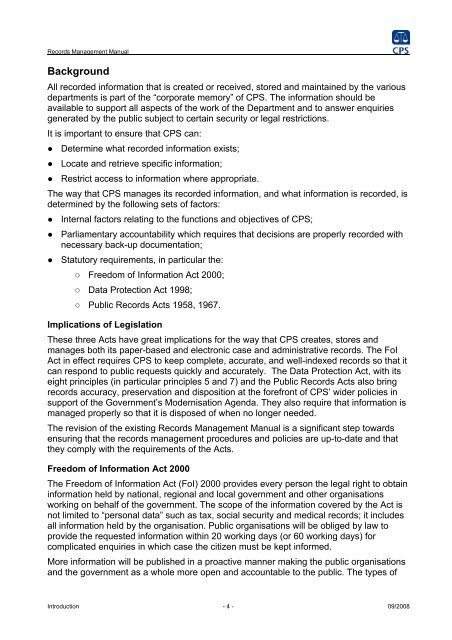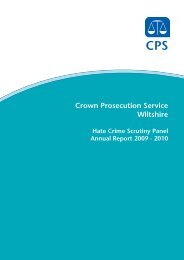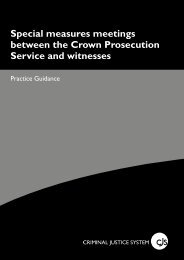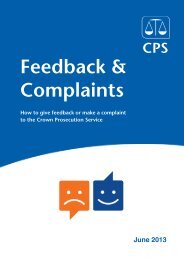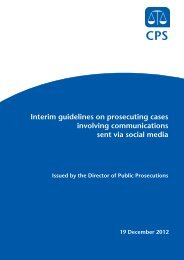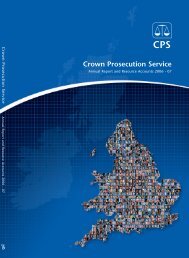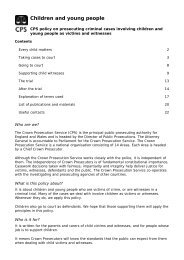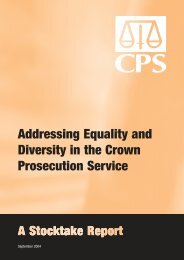Records Management Manual PDF - Crown Prosecution Service
Records Management Manual PDF - Crown Prosecution Service
Records Management Manual PDF - Crown Prosecution Service
Create successful ePaper yourself
Turn your PDF publications into a flip-book with our unique Google optimized e-Paper software.
<strong>Records</strong> <strong>Management</strong> <strong>Manual</strong>BackgroundAll recorded information that is created or received, stored and maintained by the variousdepartments is part of the “corporate memory” of CPS. The information should beavailable to support all aspects of the work of the Department and to answer enquiriesgenerated by the public subject to certain security or legal restrictions.It is important to ensure that CPS can:● Determine what recorded information exists;● Locate and retrieve specific information;● Restrict access to information where appropriate.The way that CPS manages its recorded information, and what information is recorded, isdetermined by the following sets of factors:● Internal factors relating to the functions and objectives of CPS;● Parliamentary accountability which requires that decisions are properly recorded withnecessary back-up documentation;● Statutory requirements, in particular the:○ Freedom of Information Act 2000;○ Data Protection Act 1998;○ Public <strong>Records</strong> Acts 1958, 1967.Implications of LegislationThese three Acts have great implications for the way that CPS creates, stores andmanages both its paper-based and electronic case and administrative records. The FoIAct in effect requires CPS to keep complete, accurate, and well-indexed records so that itcan respond to public requests quickly and accurately. The Data Protection Act, with itseight principles (in particular principles 5 and 7) and the Public <strong>Records</strong> Acts also bringrecords accuracy, preservation and disposition at the forefront of CPS’ wider policies insupport of the Government’s Modernisation Agenda. They also require that information ismanaged properly so that it is disposed of when no longer needed.The revision of the existing <strong>Records</strong> <strong>Management</strong> <strong>Manual</strong> is a significant step towardsensuring that the records management procedures and policies are up-to-date and thatthey comply with the requirements of the Acts.Freedom of Information Act 2000The Freedom of Information Act (FoI) 2000 provides every person the legal right to obtaininformation held by national, regional and local government and other organisationsworking on behalf of the government. The scope of the information covered by the Act isnot limited to “personal data” such as tax, social security and medical records; it includesall information held by the organisation. Public organisations will be obliged by law toprovide the requested information within 20 working days (or 60 working days) forcomplicated enquiries in which case the citizen must be kept informed.More information will be published in a proactive manner making the public organisationsand the government as a whole more open and accountable to the public. The types ofIntroduction - 4 -09/2008


